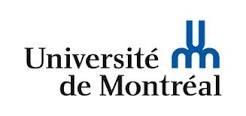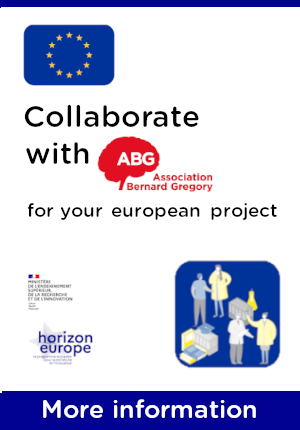Biointeractions at the nanointerface
| ABG-134248 | Sujet de Thèse | |
| 07/11/2025 | Financement public/privé |

- Biotechnologie
- Biotechnologie
- Matériaux
Description du sujet
Despite profuse literature and promising results, very few nanomedicines have been successfully translated to the clinic. For some years now, the poor understanding of the mechanisms controlling the circulation time of nanoparticles (NPs) in the blood stream has been identified as a major obstacle to nanomedicine development.1 Indeed, interactions between NPs and the cells forming the reticulo endothelial system (RES) are known to dictate how fast NP are cleared for blood and these interactions are suspected to be strongly dependent on the surface properties of the particles and on their interaction with proteins.2
The goal of the project is to elucidate the role of surface chemistry and the protein corona forming on NPs, on the pharmacokinetics of NPs in vivo. Various strategies will be explored to characterize NPs interactions with the RES in vitro and in vivo. In vitro, large libraries of NPs suspensions with controlled surface chemistry will be produced using automated high throughput microfluidic nanoprecipitation. To create large enough chemical diversity, diblock polymers will be used as building blocks of the NPs formed by self-assembly. Screening of interaction profiles of the generated NP library will be assessed in vitro on 3D organoids and in vivo on small animal models. Analysis of structure – property relationships will be performed using state of the art Deep learning algorithms.
The knowledge generated during this project will advance our comprehension of nanomaterials interactions with living matter and will help design novel drug delivery systems with improved biodistribution and pharmacokinetic profiles.
The PhD student will join Pr Xavier Banquy’s laboratory, at the Faculty of Pharmacy, whose expertise spans from polymer synthesis and production of NPs, drug delivery, microfabrication and advanced imaging. The multidisciplinary nature of the project will require interaction with multiple research teams within and outside the group.
1. Dai, Q. et al. Quantifying the Ligand-Coated Nanoparticle Delivery to Cancer Cells in Solid Tumors. ACS Nano 12, 8423–8435 (2018).
2. Blanco, E. et al. Principles of nanoparticle design for overcoming biological barriers to drug delivery. Nature Biotechnology 33, 941–951 (2015).
Prise de fonction :
Nature du financement
Précisions sur le financement
Présentation établissement et labo d'accueil
University of Montreal’s main campus is situated at the heart of Montreal city, the most vibrant city for pursuing graduate studies in North America. Recent surveys have placed Montreal as the best place to study in the world and University of Montreal as one of the best universities of the world. Pr Banquy is affiliated with the Faculty of Pharmacy, Department of Chemistry and the Institute of Biomedical engineering. His laboratory is located in this unique environment and offers world class research facilities to students willing to pursue their career in bioengineering or pharmaceutical science. This position comes with a competitive scholarship from the STAIRS training program in biomanufacturing funded by the Canada Biomanufacturing Research Fund for the whole duration of the PhD.
Site web : http://xbanquy.wix.com/labo-banquy-lab
Site web :
Intitulé du doctorat
Pays d'obtention du doctorat
Etablissement délivrant le doctorat
Profil du candidat
The applicant must be highly motivated by research and engineering.
Desired qualities are:
- Experience in nanotechnologies/biotechnologies/nanomaterials characterization is recommended
- High motivation to carry out a multidisciplinary research project at the interface of bioengineering and physics
- Strong appetite for experimentation
- Proficiency in spoken and written English
- Team spirit
- Scientific curiosity
The candidate must have academic training in one of the following fields: nanomedicine, polymer chemistry, biotechnology or biomedical engineering.
Vous avez déjà un compte ?
Nouvel utilisateur ?
Vous souhaitez recevoir nos infolettres ?
Découvrez nos adhérents
 PhDOOC
PhDOOC  ASNR - Autorité de sûreté nucléaire et de radioprotection - Siège
ASNR - Autorité de sûreté nucléaire et de radioprotection - Siège  Généthon
Généthon  SUEZ
SUEZ  Groupe AFNOR - Association française de normalisation
Groupe AFNOR - Association française de normalisation  TotalEnergies
TotalEnergies  CESI
CESI  Nokia Bell Labs France
Nokia Bell Labs France  Ifremer
Ifremer  Institut Sup'biotech de Paris
Institut Sup'biotech de Paris  ADEME
ADEME  Aérocentre, Pôle d'excellence régional
Aérocentre, Pôle d'excellence régional  MabDesign
MabDesign  CASDEN
CASDEN  Tecknowmetrix
Tecknowmetrix  ANRT
ANRT  ONERA - The French Aerospace Lab
ONERA - The French Aerospace Lab  MabDesign
MabDesign  Laboratoire National de Métrologie et d'Essais - LNE
Laboratoire National de Métrologie et d'Essais - LNE



